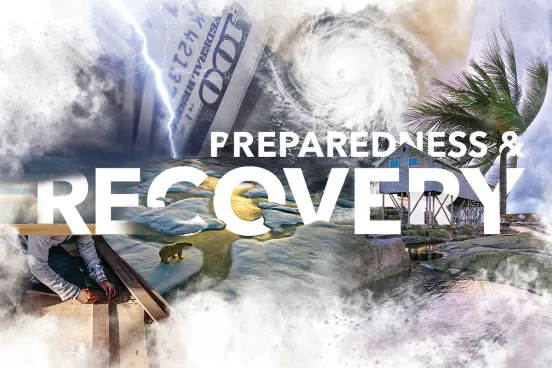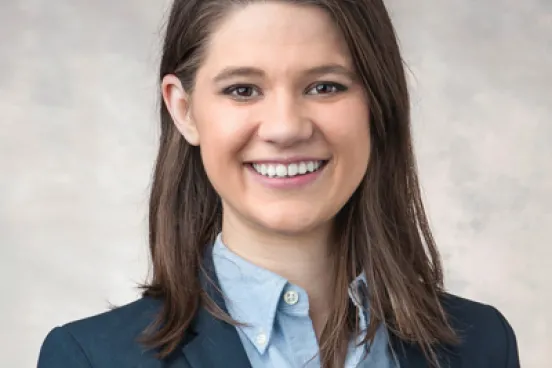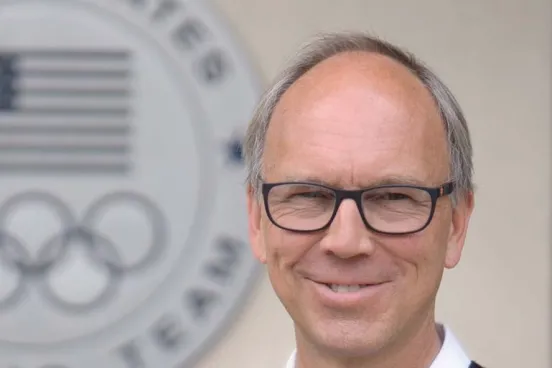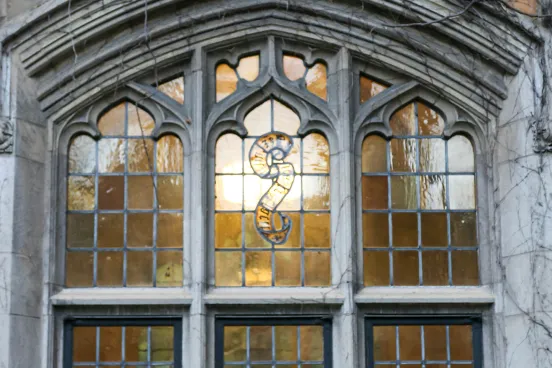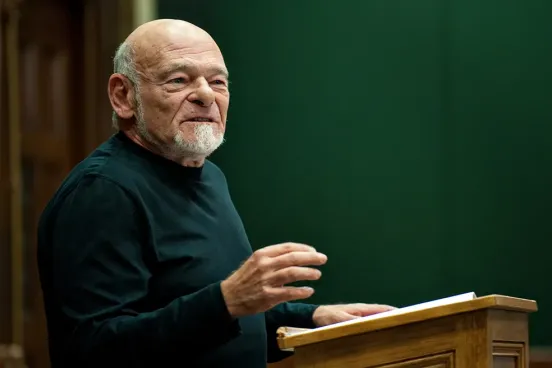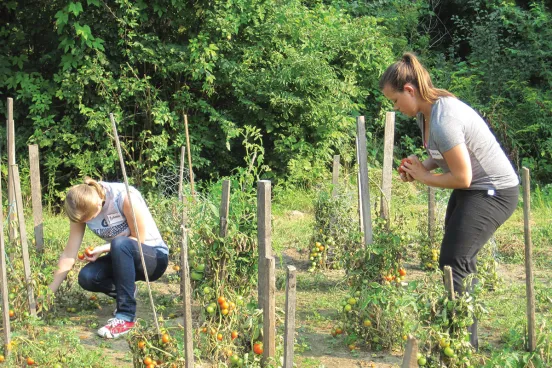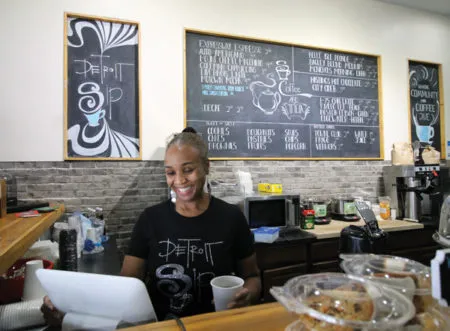
Jevona Watson’s coffee shop, Detroit Sip, is a gem hidden among the underdeveloped buildings of West McNichols Road. It opened its doors on November 18, 2017, with no small amount of gratitude to the University of Michigan’s Detroit Neighborhood Entrepreneurs Project (DNEP).
“All I can say is thank you,” says Watson to the law, art and design, and business students who worked with her. “They took me on this journey and will always be a part of this place.”
It was a journey that began four years ago when James Wahls, ’06, approached his former professor, Michael Barr, with an idea for a loan fund to support Detroit’s small businesses and entrepreneurs of color.
Barr liked it and, together with Paul Brown, MBA ’08, a partner at Michigan eLab, they analyzed the entrepreneurial ecosystem in Detroit. Their findings led the W.K. Kellogg Foundation, JPMorgan Chase & Co., and the Detroit Development Fund to establish the Entrepreneurs of Color Fund (EOCF) in 2015.
“The fund was just the start,” says Barr, dean of U-M’s Gerald R. Ford School of Public Policy and the Roy F. and Jean Humphrey Proffitt Professor of Law at Michigan Law. “With much of Detroit’s rebirth focused on the downtown and midtown areas, I saw an opportunity to make a difference for the neighborhoods left behind.”
This meant harnessing the talent and enthusiasm of U-M students by partnering with the Law School, the Ross School of Business, and the Stamps School of Art and Design.
When the U-M Center on Finance, Law, and Policy received grants from MCubed and the JPMorgan Chase Foundation in 2016, they used the funding to launch DNEP—an interdisciplinary clinic drawing together U-M resources to serve small businesses, selected by the clinic, in Detroit.
Enrolling in the Community and Economic Clinic (CEDC) provides law students with the avenue to become involved with DNEP.
Founded in 1991, the CEDC is dedicated to promoting vibrant, diverse, and sustainable communities by providing transactional legal services to nonprofit and community-based organizations and social enterprises.
To give DNEP a home at the Law School, the clinic expanded its services to include neighborhood-based entrepreneurs and small businesses. It also welcomed Dustin Marlan, a clinical teaching fellow, to lead this new entrepreneurial clinic initiative.
“DNEP is an opportunity for law students to contribute to the exciting entrepreneurial ventures that are taking place in Detroit,” says Marlan. “It’s important that Detroit and Ann Arbor join forces in a way that the two communities haven’t in the past.”
In its first year, DNEP engaged 20 law students, 20 art and design students, 31 business students, and 13 startups.
“These are real clients,” says Alicia Alvarez, clinical professor of law and director of the CEDC. “Our students are given real issues and are proposing solutions to be implemented with real consequences.” DNEP provides comprehensive (“wrap-around”), one-on-one services to help solve small business owners’ most pressing problems.
3L Barbara Moore joined DNEP the winter of her 2L year. She worked closely with Watson and her colleagues to submit Detroit Sip’s name and logo for trademark registration.
“Entering law school, I didn’t think I would be advising art and design students on how to make steam [an aspect of the logo’s design] more imaginative, but I did and it was really fun,” says Moore, who took the opportunity to observe her counterparts and their work outside the realm of the Law School.
“Students from other disciplines were proactive in a way we law students were not. They would set a plan of action and want to act on it immediately. However, lawyers are taught to think cautiously and analytically, so we took more time to address legal issues and minimize risk. It was tricky at times, but we found a balance and made it work.”
The parallels and synergies created by this collaboration inspire students and faculty alike. “I enjoy these interactions,” says Marlan. “It’s rewarding seeing students apply their legal knowledge and come to understand the interdisciplinary dimensions, witnessing the larger economic and societal impact their work generates.”
Moore encourages anyone with an open mind and looking for a challenge to join DNEP. “Community development should be in the hands of local people,” she says.
“We help those individuals, who have identified local needs, to grow their ideas. We fill the gaps in their already established dreams, and the experience has definitely made me a better lawyer.”


